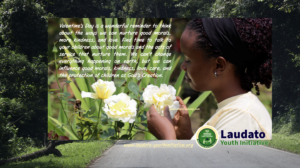By Laudato Voices | August 30, 2025
Lake Bunyonyi, long regarded as one of East Africa’s most beautiful lake “Place of Many Little Birds” or “birding paradise” due to its abundant bird species. It is also known as one of Africa’s deepest lakes and a picturesque freshwater body, characterized by its 29 islands and surrounding terraced hills is now raising concerns over possible climate change effects that could be related to environmental degradation. Residents and environmentalists alike have reported significant changes in water color, fish behavior, odor, and shoreline stability. These transformations are not merely aesthetic but are indicative of serious ecological distress.
At the center of the crisis are three predicted interlinked processes: siltation, organic loading, and diminished oxygen levels all of which are now threatening both the lake’s biodiversity and the livelihoods of the communities that depend on it (Monitor, 2025; Nile Post, 2025).
Siltation: Erosion’s Silent Menace
One of the most visible signs of environmental stress in Lake Bunyonyi is the dramatic change in water color from clear blue to a murky yellow-brown. Environmental officers and local leaders attribute this to siltation, caused by soil erosion from the surrounding hills, which has worsened due to deforestation, poor farming practices, and shoreline degradation (Monitor, 2024a).
As heavy rains wash loose topsoil into the lake, the sediments cloud the water, choking aquatic habitats and accelerating eutrophication. The absence of vegetative buffer zones around the lake has allowed runoff to enter the water freely, carrying with it sediments, nutrients, and pollutants (Uganda Radio Network, 2025).
Organic Loading: A Recipe for Imbalance
The lake could also be suffering from organic loading an accumulation of decomposing plant matter, waste, and nutrients that can destabilize the lake’s natural chemistry. This process, often referred to as “brownification,” causes dissolved organic compounds and iron to accumulate, absorbing light and further darkening the water (Monitor, 2025).
Residents have also observed creamy white films and oily substances floating on the water surface, particularly around Bwaama and Punishment Islands. These may be biofilms or waste residues, both of which signal a spike in organic matter breaking down in the water (ChimpReports, 2025).
Oxygen Depletion: A Warning from the Deep
The most serious biological consequence of this environmental degradation is oxygen depletion, also known as hypoxia. This occurs when the microbial breakdown of organic material consumes the oxygen available in the water, especially in deeper zones.
Fish and other aquatic organisms are now surfacing, gasping for air or might dye if this continues, especially in the early morning hours when oxygen levels are at their lowest (Monitor, 2025; Nile Post, 2025). According to Dr. Alex Saturday of Kabale University, this unusual behavior is a clear indicator of vertical oxygen stratification with the lower layers of the lake becoming uninhabitable due to lack of dissolved oxygen (Nile Post, 2025).
This event will have Ripple Effects on Local Communities
Lake Bunyonyi is not just a tourist gem; it is a vital source of water, food, and income for thousands of Ugandans. Many families rely on the lake for domestic water use, irrigation, fishing, and ecotourism. The degradation of its ecosystem now poses significant public health and economic risks.
Communities have reported a foul odor, reduced water quality, and are growing increasingly reluctant to use lake water for household needs, even when boiled or treated (ChimpReports, 2025). With tourism also at risk, this environmental crisis may soon turn into a socio-economic emergency.
In raising voices basing what researchers and reporters above have found something can be done?
Experts and local authorities recommend immediate and long-term solutions, including:
- Restoration of shoreline buffer zones to reduce erosion and filter runoff.
- Sustainable farming practices, such as terracing and agroforestry, to stabilize soil.
- Community-led conservation awareness, especially targeting youth and farmers.
- Strengthening disaster response through local environmental task forces (Monitor, 2025).
Kabale District has already initiated the formation of a Disaster Working Group to respond to this crisis and prevent long-term ecological collapse (Monitor, 2025).
Lake Bunyonyi’s recent environmental challenges are a wake-up call. The combination of siltation, organic loading, and oxygen depletion not only disrupts its delicate ecosystem but also threatens the well-being of the communities who depend on its resources every day.
To protect this sacred and essential body of water, urgent collaborative action is needed across local government, environmental groups, religious leaders, and the communities themselves. If we ignore these early warning signs, the consequences will ripple far beyond the lake’s shores.
References
ChimpReports. (2025, August 27). Environmentalists raise alarm over sudden changes in Lake Bunyonyi’s water. https://chimpreports.com/environmentalists-raise-alarm-over-sudden-changes-in-lake-bunyonyis-water/
Monitor. (2025, August 26). Lake Bunyonyi changes colour, fish suffocate amid environmental concerns. https://www.monitor.co.ug/uganda/news/national/lake-bunyonyi-changes-colour-5168778
Monitor. (2025, August 30). Reports of volcanic eruption at Lake Bunyonyi: Blot on journalism. https://www.monitor.co.ug/uganda/oped/columnists/muniini-k-mulera/reports-of-volcanic-eruption-at-lake-bunyonyi-blot-on-journalism-5175658
Monitor. (2025, August 31). Kabale stakeholders bolster disaster preparedness after Lake Bunyonyi changes colour. https://www.monitor.co.ug/uganda/news/national/kabale-stakeholders-bolster-disaster-preparedness-after-lake-bunyonyi-changes-colour-5171158
Nile Post. (2025, August 27). Strange colour change and foul odour hit Lake Bunyonyi hard. https://nilepost.co.ug/iyf%2Bwe%2Bcan%2Bacademy/283336/strange-colour-change-and-foul-odour-hit-lake-bunyonyi-hard
Uganda Radio Network. (2025, August 25). Silting slowly killing Lake Bunyonyi. https://ugandaradionetwork.net/story/silting-slowly-killing-lake-bunyonyi














